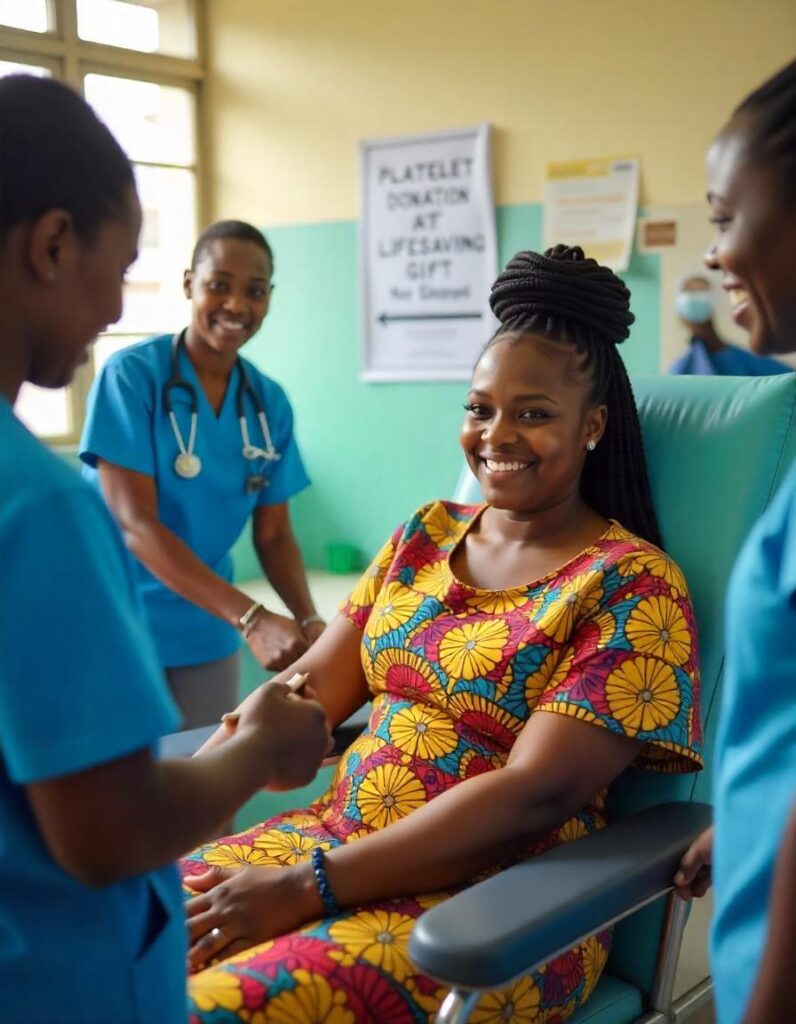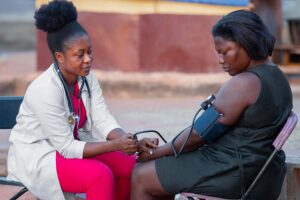Countless lives are lost each year due to a shortage of essential medical resources. While many are familiar with the concept of blood donation, the vital act of platelet donation remains one of the most overlooked ways to save a life. Platelets, the small cells that help blood clot, play a critical role in treating patients with cancer, blood disorders, and those undergoing major surgeries. Yet, despite their life-saving potential, platelet donations remain in short supply.
In this article, we’ll explore the importance of platelet donation, the benefits of blood donation, and why it’s time for Nigerians to recognize platelet donation as a powerful gift. Plus, we’ll highlight how Oneus in Nigeria is leading the charge to address this issue and make a life-changing difference.
The Critical Role of Platelet Donation
Platelet donation is one of the most specific and crucial types of donations. While regular blood donation helps replenish blood supplies, platelet donation directly impacts the treatment of patients suffering from diseases like leukemia, lymphoma, or aplastic anemia. People who undergo chemotherapy often have weakened immune systems and require platelet transfusions to prevent life-threatening bleeding.
Interestingly, platelets are often in short supply because they have a shelf life of only five days, unlike whole blood, which can be stored for up to 42 days. This makes platelet donations even more critical and time-sensitive. Platelet donation, though, is less well-known than blood donation, and many people don’t realize how desperately these tiny cells are needed.
The Overlooked Lifesaving Gift
Why do so few Nigerians understand the importance of platelet donation? Part of the reason is that the process is different from regular blood donation. It requires a special procedure known as apheresis, where blood is drawn, platelets are separated, and the remaining blood components are returned to the donor. This takes longer than a simple blood donation and can be uncomfortable, but the benefits far outweigh the inconveniences.
Unfortunately, the majority of blood drives and donation campaigns focus solely on whole blood donation, leaving platelet donation underemphasized. As a result, many patients in need of platelets, especially those undergoing chemotherapy or bone marrow transplants, face delays that could jeopardize their health.
Why Platelet Donation Matters Now More Than Ever
The need for platelet donation in Nigeria is critical, particularly with the rise of blood-related illnesses like leukemia and the increasing demand for surgical procedures. According to medical experts, blood banks across the country report a shortage of platelets. This can lead to severe consequences for patients in urgent need of these vital cells. Without platelets, small injuries can lead to uncontrolled bleeding, and even minor surgeries can become life-threatening.
What’s worse, blood donation campaigns often fail to highlight the specific need for platelets, which means that many potential donors are unaware of the impact they could make. By donating platelets, you are giving a life-saving gift to someone in need—whether it’s a cancer patient, someone recovering from a major surgery, or a child with a blood disorder.
The Oneus Approach: A New Hope for Platelet Donation
Oneus in Nigeria is committed to solving the problem of platelet donation. They are actively working to raise awareness about the life-saving benefits of platelet donation and encourage more Nigerians to give. Through their advanced blood plasma centers, Oneus has created a reliable platform for donors to contribute platelets easily and safely. Their goal is to provide a steady supply of blood platelets to hospitals, ensuring that patients receive the care they need.
Oneus also helps educate the public about the entire blood donation process, including blood types, blood groups, and even the less-known aspects like plasma donation and bone marrow donation. Their efforts extend beyond traditional blood donation, ensuring that all blood-related needs, including umbilical cord blood banking, are met.
Tips for Platelet Donation
- Know Your Blood Type and Rhesus Factor: Understanding your blood group and rhesus factor (such as O positive, B negative, etc.) can help determine your eligibility for donating platelets. Some blood groups are more in demand than others.
- Stay Hydrated: Drinking plenty of water before your donation will help the process go smoothly.
- Understand the Process: Platelet donation is a bit different from regular blood donation. It’s a longer process but entirely safe. Ask about the procedure at the donation center for clarity.
- Check Eligibility: Make sure you meet the basic requirements for donation, including being in good health and not having certain medical conditions. Platelet donation centers often have specific criteria, so always inquire first.
- Consider Plasma Donation: Plasma donation also plays a key role in saving lives. If you’re interested, Oneus can guide you on how plasma donation works.
The Risks of Not Donating Blood
The cost of not donating blood and platelets is not just measured in numbers. Delays in receiving platelets can lead to complications that are easily avoidable with timely donations. In Nigeria, the shortage of blood and platelets continues to claim lives, as people suffering from diseases like leukemia and undergoing critical surgeries often lack access to the necessary medical resources.
When blood donation campaigns focus only on whole blood, vital platelet donations go unnoticed. This gap in supply can have devastating effects on families in need. With just one donation, you could provide essential care to someone fighting for their life.
Call to Action: Give Blood, Save a Life
Platelet donation may be overlooked, but it’s an essential gift that saves lives every day. Don’t wait for someone else to make the change. Be the difference.
Give Blood, Save a Life – Book Your Donation Now! Contact us at info@oneusng.com, +234 902 168 2822 or visit Oneusng.com for more information.
Your donation can make all the difference.




